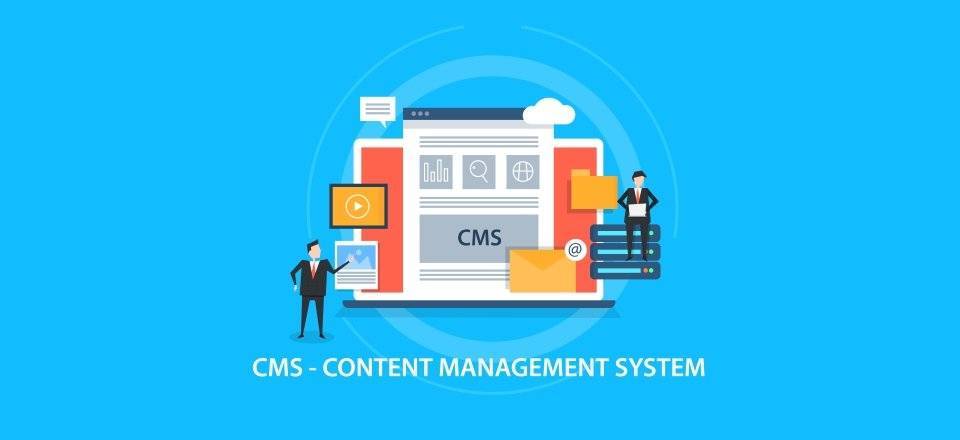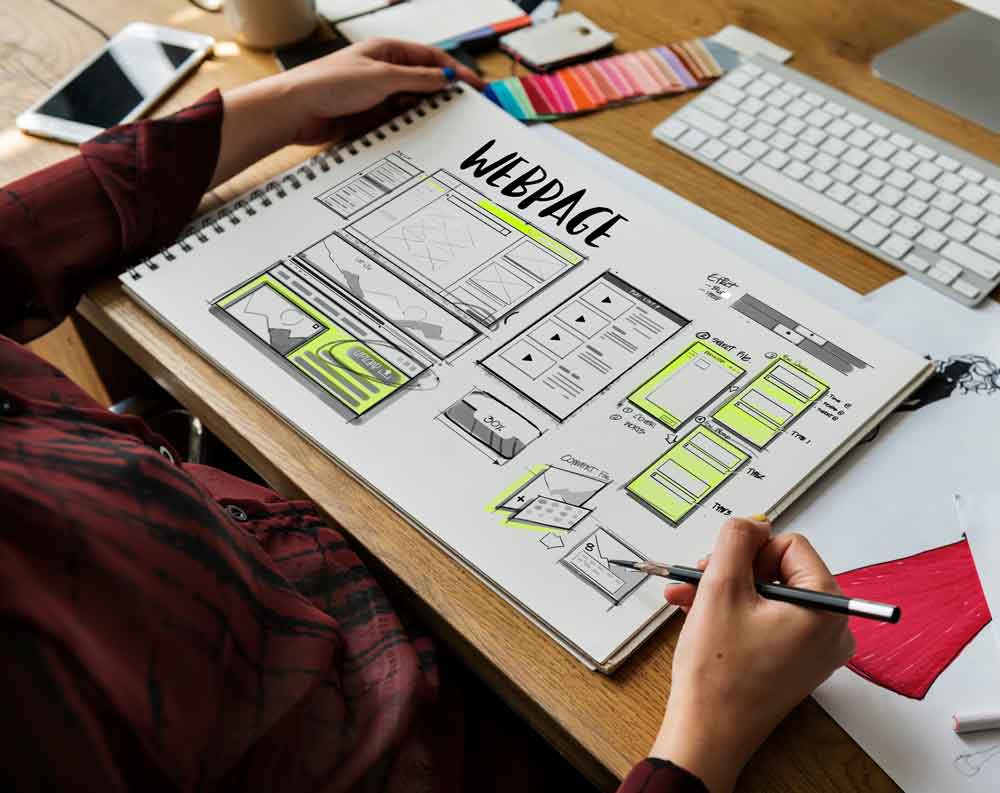But building an effective website can be tricky – there are so many things to think about! That’s why we put together this handy guide, with 5 key steps to do before building a new website for your business. Read on to learn more!
1. Get a great domain name
The domain name is often the first thing people see when they go to your site, so it’s important that you use an attractive and easy-to-read URL.
This will help with SEO too!
When searching for a URL try and get one that really represents your business, it could either be your company name or something that represents the products or services that you offer.
An important thing to remember is that a lot of good domain names will have already been taken, so when you do find a suitable one that is available do your research.
For example, if you buy onlinecooking.co.uk, try and check whether onlinecooking.com has already been taken. A customer could search for you and easily find the other website and think it’s you!
Read more on how to secure a perfect domain name
2. Great hosting and tech support are invaluable.
Hosting providers offer the technology and services necessary for a website to be viewed on the internet. You connect your domain name with a hosting provider so that when users visit your site, they are able to see it.
In simple terms, hosting is where your website lives online.
Hosting comes in all shapes and sizes or offers different specifications depending on how the website is built, the number of users plus many other factors.
For most small businesses that are building a website for the first time, hosting shouldn’t really cost the earth. Typically you would be looking at anywhere from £10-£100 per month.
Although, if your website is simple and you don’t have a huge amount of traffic then the bottom end is more likely.
There are a few things to look out for when considering a hosting company:
Support
Check out their website and see if there are signs of a support phone line or a live chat facility.
At some point you probably will need help, some hosting companies have notoriously bad support and are very hard to get hold of.
Recommendations
Most hosting companies will be listed on review sites such as Trustpilot.
Look at their overall score and delve further into their positive and negative feedback.
Also, check out their social accounts and see comments that people post.
Location
Ideally, you want to secure hosting where the majority of your customers will be.
For example, if you’re a UK business and target UK customers, then you really want the hosting to be in the UK.
It will speed up the site slightly.
Also, if they are based in the same country as you, it will mean they are in the same time zone, so support should be easier.
Growth
Ensure that whoever you choose to host your website that you can easily change your package.
In the past, we have built websites for clients that have started out small and within a year or so their growth has been phenomenal.
Ensure that you can upgrade your hosting package in line with your site and users or even downgrade it if you’re paying too much for things you no longer need.
Your hosting plan needs to be flexible with no tie in periods!
Security
Hosting is only as good as the security it offers.
As a standard, all hosting providers should, even on the most basic packages offer security such as an SSL certificate which is a fancy term meaning keeping customers’ data safe.
Check whether they also offer backups, this is a minimum requirement.
Cost & extras
Cost as with anything you purchase is something that needs to be considered.
There are a fair few hosting companies out there (not naming any names here!) that will offer you really low prices to host with them.
Then as time moves on you start to realise that there is a smorgasbord of optional add-ons.
Many of which really aren’t addons, they are actually something that you needed in the first place.
For example, I’ve seen hosting companies offer really cheap deals with 1 email address. No SSL, limited security and no live support.
Of course, you can have these all at an extra cost but that yearly hosting fee of £99, soon jumps up to £250 when you have added on these things.
When looking for a host, don’t just look at the price.
Compare what they offer in their plan and then compare their prices.
A mid-range package from one supplier may actually be a lot cheaper than another company’s offerings when you add on everything you actually need.

3. Choose the right platform for your website
When building your first website two main factors that you will have to consider are what platform it’s built on and how easy is the content management system (CMS) is to use.
It’s possible, at this stage you really should talk to a good website developer as it can be quite technical in nature.
Although, there are other elements to consider such as:
- The function of the website. Whether the website has online transactional capabilities like a shop, membership site, booking/reservation site or requires any specific functions or integrations or whether it is simply a brochure website showing what you do.
- Is the platform open source or does building the website tie you into that platform?
- Does the platform that the website is built on make it easy for you to update and add too easily without loads of technical or coding knowledge?
- Is the platform a well-recognised system that has been around a long while? Such as WordPress, Squarespace, Bigcommerce, Wix and Shopify etc?
- Are there developers that offer assistance should you need that you can easily find?
There is a lot more that needs to be thought about, but these are some of the main factors.
A lot of these choices will be easy to answer.
For example, if you need a simple brochure website then obviously an e-commerce platform such as Shopify won’t be right.
The best thing to do is pick up the phone and speak to a developer.
Let them know what you are trying to achieve and they will be able to help you for free. Advice should cost nothing!

4. Choose the right designer
Choosing the correct website designer is one of the most important things to do.
They should even be able to help you with everything else on this list or at least offer you some advice.
We’ve covered it in detail before, but a quick summary will really help you know what to consider when it’s time to choose.
Here are questions to answer:
- Do you opt for a freelance website designer or a website company?
- Do they have lots of examples of websites they have built?
- Have they lots of reviews and testimonials available?
- Does the price to build the website seems too cheap or too expensive?
- Do they ask you lots of questions and seem to understand the project?
- Will they offer support post-launch?
- What skills do they offer such as copywriting, SEO, marketing, Ad-campaigns etc?
Always remember to speak to at least 3 to 4 web designers to compare not only prices but to see how they will approach the website.
If one quote, for example, has something in it that the others don’t, is it really needed or have the others not thought about it?
Should you get good vibes and a natural rapport with them then chances are you will work well together.
If every time you call them it’s an answerphone message think about how the project will be going forward.
5. Post-launch planning
Now, I guess you’re probably thinking, “this is something that can be done after the website is built”?
And to some extent you’re right. However, you should always have your game plan in place at the very beginning.
This can fall into many areas such as marketing, SEO and maintenance to name a few.
This planning can also impact how the website is built and what it should contain.
SEO & ranking
So you have a new shiny website and you can get to it by typing in your URL in the address bar of a search engine.
However, 99.9% of people won’t have a clue about your new business and site.
So, how will get people to find your website?
One method is to get the site to rank highly for the terms that you would want to be found for, this is called search engine optimisation or SEO.
It’s a really complicated process with many aspects to it.
The first step, however, is to work out the keywords and phrases that you wish to be found for by doing research.
It’s better that you look online at SEO guides for beginners to start learning about the process and the basics of what needs to be done.
Marketing & social media
Regardless of what industry you’re in, you should have an active presence on social media, you should also have an overall marketing strategy.
Think about the type of posts you will create and the content that you will likely use.
Also what other marketing activities will you be doing.
For example, will you want to send email campaigns out? If so, where will you get the email addresses from?
Again your website could be the place where people sign up to receive this information and special offers.
This will impact the build in the first place as you will need a signup form.
A good tip is to look at other successful companies that work in the same niche as you and analyse what they are doing and how they are doing it.
Build on their strengths.
Marketing and social media are big subjects in their own right.
Go back and do research on how to market the business well and how to create and build an engaged social following.
A great place to start with guides on marketing, free online courses and information is on Hubspot, plus it’s totally free.
Monitoring
If you’re serious about your website being a major asset for your business you should really look at how you will monitor everything surrounding it.
Ideally, you want to know user figures for your website, how are people getting to it, which pages people don’t go to, which are the most popular etc.
Without knowing this, how can you improve your website and what you offer to your customers?
Use platforms like Google Analytics, SEMrush or Moz to analyse your website and your competitors.
Maintenance, support & security
Have a plan in place so that you know how to update and change your website, or who to call if you can’t/don’t want to do it yourself.
Ensure that you have processes in place to back the site up on a regular basis and someone that can keep it secure and error-free.
All sites no matter how big or small will face issues from time to time, so you need a cast-iron strategy, if you need help, where will you turn?
Conclusion
Now that you understand the 5 steps to take before building your first website, it’s time to put these principles into action.
By following the tips in this article, you are on your way to creating an online presence that will attract new customers and help your business grow.
Are you ready to get started?






0 Comments